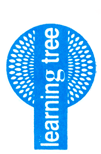
Nursery 2 Year Old Curriculum | Nursery 3 Year Old Curriculum |Pre-K Curriculum 3-4 Year Olds | Pre-K Curriculum 4 Year Olds
Nursery Curriculum for 2 Year Olds
Our curriculum is based on the New York State standards of excellence. We hope to reach these goals years end. Though we concentrate on social skills for our early childhood learners, academic pursuits are evident from the youngest to the oldest classrooms. We approach learning with a stress on individuality. Each child is evaluated when they enter our school to discover what knowledge and social base they came to us with. Using Individualized instruction, theme teaching, small group work, and large group learning environments we attempt to achieve the goals listed below. Each class is specifically designed to meet these goals in a developmentally appropriate way.
Reading - Habits
1. Understanding reading as a source of knowledge.
2. Treating books with respect.
3. Holds book right side up and turns pages in the right direction.
4. Distinguishes pictures from print.
5. Can locate parts of a book.
6. Expose children to a range of materials including; picture books, songs, magazines, poems, etc.
7. Discuss books with peers and teachers.
8. Learn new words daily.
Reading – Getting the Meaning
1. Retelling the story.
2. Re-read favorite stories – imitating reading behaviors of teacher or parent.
3. Recognize signs in our environment.
Reading – Print sound and code
1. Identifying names and sounds of the letters of the alphabet.
2. The sequence of the alphabet.
3. Hear and recognize rhyming words.
Writing - Habits
1. Use letters, scribbles, and pictures to tell a story.
2. Begin to listen to other’s writing and re-read their own.
3. Begin to keep a collection of writing.
Writing – Purposes
1. Develop small motor skills with independent activities (play dough, cutting)
2. Write in order to…
a) communicate.
b) tell a made up story.
c) for enjoyment.
Listening and Language Skills
1. Listen and speak daily in whole class and small group discussions, and one-to-one conversations with the teacher in order to:
a) show understanding of stories read to them.
b) learn and practice using new vocabulary.
c) share ideas and facts with their classmates and teachers.
d) ask questions to make things clear.
e) hear and follow directions.
f) listen respectfully and learn to take turns speaking.
g) extending their attention span for their age.
Arithmetic and Number Concepts
1. Count objects up to 10.
2. Identify numbers and names 1 – 10.
3. Practice the skills of counting from a particular number.
4. Share sets of objects with others.
5. Compare two groups and see which is more, less, the same, and use appropriate vocabulary (e.g. bigger/smaller).
Geometry and Measurement Concepts
1. Identify and name basic shapes.
2. Explore non standard units of measurements.
3. Use comparisons such as; bigger than, smaller than, equal to.
Mathematical Process
1. Talk about the use of math in every day life.
2. Play games involving sorting and classifying.
3. Put objects in sequence or order.
Physical Science Concepts
1. Demonstrate understanding of the life cycle of an organism.
Scientific Connections and Applications
1. Demonstrate understanding of personal hygiene.
Social Studies Concepts
1. Demonstrates an understanding of the environment around them. 2. Demonstrates and understanding of the roles of different people in their community.
Social Skills
1. Learn to use classroom materials with one or more individuals.
2. Using appropriate language in conversation.
3. Respect and show concern for people and things around them.
4. Getting along with others.
In addition to the above skills being taught throughout the year, the teachers will use the following themes to encourage learning through the curriculum areas.
All About Me
Harvest : apples, pumpkins, the farm
Halloween
Community Helpers
Thanksgiving
Holiday Celebrations
Polar Animals
Winter Weather
Valentines Day
Author Study
Dinosaurs
Spring Celebrations
Insects
Flowers
Rocks/Shells
Moving On – transition to next grade
|



